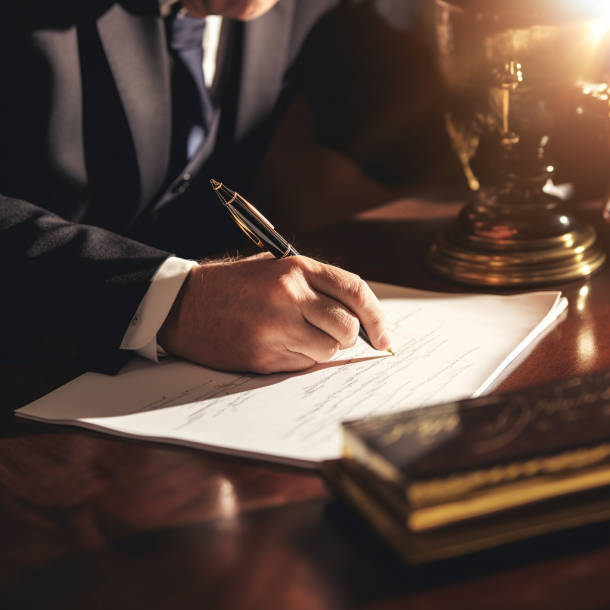Writing a will for elderly in New Zealand
Look into the essentials of crafting a will in New Zealand ensuring your assets are secured
A will serves as a clear declaration of one’s desires regarding the distribution of assets, the guardianship of dependents, and any other personal instructions or desires. It is a cornerstone of estate planning, aiming to bring peace of mind to the elderly, knowing that their directives will be carried out as intended.
However, the topic of wills is also fraught with misconceptions. Many believe that wills are only for the wealthy, thinking that their own possessions aren’t significant enough to merit a formal document. Others operate under the assumption that their assets will naturally go to their next of kin, without realising the potential complexities and disputes that can arise in the absence of a clear will. Furthermore, some presume that crafting a will is a daunting, complex task that necessitates extensive legal knowledge.
New Zealand’s legal landscape offers a supportive framework for the creation of wills. While the country upholds the principle that everyone has the autonomy to decide how their estate should be distributed, it also emphasises the need for wills to be properly executed and witnessed. The Wills Act 2007, for instance, lays out clear criteria for what constitutes a valid will. We recommended that legal advice be sought in writing a will to make sure that it is valid and is covering your needs correctly.

Understanding the basics
Before diving into crafting a will, especially in the context of New Zealand, it is vital to grasp some foundational concepts. These basics help to frame the larger discussion, ensuring that as we broach deeper topics, there’s a clear understanding of the terms and principles at play.
Definition of a Will:
At its core, a will is a legal document that states how an individual, upon their passing, wishes to distribute their assets, from property and finances to personal belongings. It also can detail specific instructions on issues like the care of minor children, funeral preferences, and more. Essentially, a will is the voice of the departed, guiding family and loved ones during a time often marked by grief and uncertainty.
The Parties Involved:
- Testator: This is the individual who creates the will. In this context, it would be the elderly person in New Zealand laying out their wishes for the distribution of their assets and any other specific directives.
- Executor: Appointed by the testator, the executor is responsible for ensuring that the stipulations of the will are carried out accordingly. Their duties can range from paying off debts, gathering and distributing assets, to handling administrative tasks such as filing taxes for the estate. It’s crucial for the testator to choose someone they trust implicitly as their executor.
- Beneficiaries: These are the individuals or entities set to receive the assets or benefits laid out in the will. Beneficiaries can be family members, friends, charitable organisations, or any other entity the testator chooses.
Key Legal Requirements for a Will to be Valid in New Zealand:
New Zealand’s legal framework has specific guidelines to ensure the authenticity and legality of wills:
- Age: The testator must be at least 18 years old. Exceptions exist for individuals under 18 who are or have been married, in a civil union or de facto relationship, or those who are serving in the armed forces.
- Mental Capacity: The testator must be of sound mind when writing the will. This ensures that they fully comprehend the nature of the document and the implications of the decisions made within it.
- Written Format: A valid will in New Zealand must be in writing. This can be handwritten, typewritten, or printed.
- Witnesses: The will must be signed by the testator in the presence of at least two witnesses. These witnesses then must also sign the will in the presence of the testator and each other. It is imperative that these witnesses are not beneficiaries or closely related to any beneficiaries to avoid potential conflicts of interest or legal complications.
- Clear Intent: The document should clearly indicate that it is intended to be the testator’s will and reflect their wishes regarding the distribution of their assets after death.
Understanding these basics provides a solid foundation for elderly individuals in New Zealand as they navigate the often-sensitive journey of crafting a will. It’s a process that, while steeped in legal terms and requirements, is ultimately about preserving one’s legacy and ensuring a clear path for loved ones left behind.

What should be on my will
1. Choosing and Understanding the Role of an Executor
- Appointment of an Executor: Every will should designate at least one executor. This individual is responsible for ensuring your will’s directives are executed and oversees the administration of your estate until its proper distribution.
- Executor’s Duties: These can range from paying off debts, selling properties, and distributing the estate as per the will’s guidelines. Executors may also need to deal with any claims against the estate.
- Legal Assistance: Lawyers can be invaluable in assisting executors, offering guidance on claims, and ensuring the will’s stipulations are met.
- Compensating the Executor: Even if the executor is a close friend or family member, it is essential to consider if they should be compensated for their time and efforts. Administering an estate can be arduous.
- Choosing an Executor as a Witness: An executor can also witness the will, but this might affect any gifts left to them. However, compensation for their executor role isn’t affected.
2. Distribution of Assets and Liabilities
- Addressing Liabilities: Ensure your will outlines the settlement of liabilities like mortgages, overdrafts, and debts.
- Catering to Dependents: The will should provide adequately for dependents to prevent potential claims on the estate.
- Inheritance Specifics: Personal possessions, general assets, and provisions about less valuable items should be detailed in the will.
- Joint Property Ownership: Properties owned as joint tenants pass to the surviving partner automatically, and the will does not affect such properties. However, if owned as tenants in common, the deceased’s share is incorporated into the estate and distributed as per the will.
- Business Provisions: Directives on how to manage or distribute a business you own can be included, but due to its complexity, legal counsel is advised.
3. Personal Wishes and Additional Provisions
- Guardianship of Children: Your will can specify preferred guardians for your minors.
- Funeral Arrangements: While not legally binding, indicating your funeral preferences can guide those organising it.
- Organ/Tissue Donation: Although the will can mention this, discussing it with next-of-kin might be more practical, as the will might not be read in time.
- Donating Your Body: Arrangements with medical schools like Otago or Auckland should be made in advance. Relevant forms should accompany the will.
- Charitable Donations: Whether specific gifts, monetary amounts, shares, or a residual gift from the remaining estate, you can dictate how your assets support charitable causes.

Can I Cancel or change my will
You can cancel your will at any time while you are still of sound mind by:
- making a new will
- declaring in writing that you revoke your existing will
- destroying your will with the intention of revoking it
- otherwise showing an intention to revoke it
When you make a new will, you should always start by inserting a clause revoking any previous will. It is wise to inform anyone holding a previous will that it is no longer current. You should also consider advising any previous executors if they have been replaced.
In some circumstances, you can change a portion of your will without making a new one. It is recommended that you consult a lawyer when making changes to your will.

Common mistakes to avoid
- Leaving Out Important Details or Assets:
- It is easy to overlook certain assets or details when penning down a will, especially if they’re not immediately at the forefront of one’s mind. However, missing out on these can lead to complications in the estate distribution process. Regularly revisiting the list of assets and ensuring that everything—from properties and bank accounts to smaller items of sentimental value—is included can help prevent disputes or confusions later.
- Not Updating the Will After Major Life Changes:
- Life is ever-evolving. Events such as marriages, divorces, births, deaths, or even significant financial changes can greatly influence one’s wishes regarding asset distribution. Failing to update the will to reflect these changes can result in outdated allocations that no longer represent the testator’s desires. Regularly reviewing and updating the will ensures it remains aligned with current circumstances and wishes.
- Ambiguities or Contradictions in the Will:
- Clarity is paramount when drafting a will. Vague phrases, contradictions, or lack of specificity can lead to misinterpretations, disputes among beneficiaries, or even legal challenges. It’s crucial to be explicit about one’s intentions and ensure that there’s no room for multiple interpretations. If in doubt, seeking legal counsel can help clarify and streamline the content.
- Neglecting to Get the Will Witnessed Correctly:
- For a will to be legally valid in New Zealand, it must be witnessed correctly. This involves having at least two witnesses present when the testator signs the will. These witnesses must then also sign the document in the presence of the testator. Overlooking this step or having it done improperly can render the entire will invalid. Additionally, it’s important to note that any beneficiary or their spouse/partner should not witness the will, as this may void any gifts left to them.
